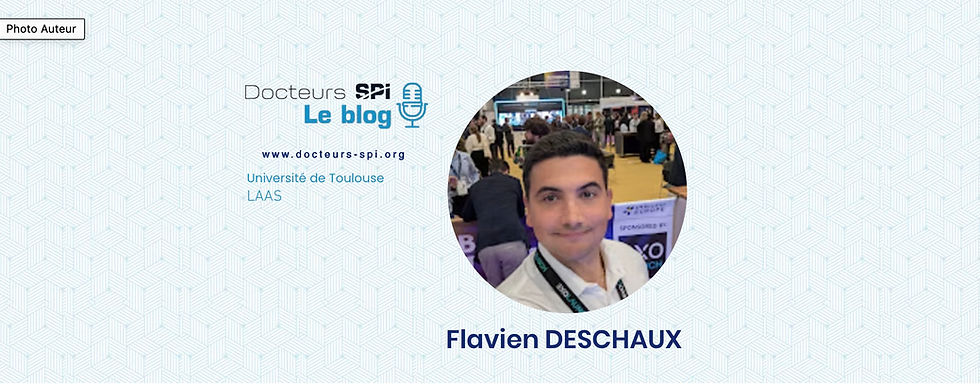Felipe GONZALEZ VENEGAS, 31 years, Energy & optimization consultant at Artelys
- Felipe GONZALEZ

- 11 juil. 2022
- 3 min de lecture
Dernière mise à jour : 21 avr. 2025

Can you tell us about your career path so far, and why you decided to do a thesis?
I’m an engineer by training (and at heart!). I followed a double degree program between Universidad de Chile and Centrale Paris (now CentraleSupélec), obtaining the engineering degree from both institutions. During my two last years at U de Chile I did a Masters in Electrical Engineering with a focus on energy systems modelling. I had the chance to do a master’s thesis in the imports of LNG for the Chilean power system, a hot topic on Chilean energy policy at that moment (and still is). That made me realize the importance of science-based policy and regulation, especially in the energy sector, which can be quite political.
After the masters, I worked for about one year and a half in Chile, in a small (but growing!) energy consulting company, SPEC, which developed advanced mathematical models and tools for decision support. I liked how they were bridging the gap between research and academia to the industry, providing powerful tools simulation tools and advanced visualizations, and also carrying policy-relevant studies at the Latin American level.
While I was enjoying working in Chile, I wanted new challenges and started looking to ways to come back to France. I found an offer for my soon-to-be thesis project on line, and the subject captivated me. It was about the integration of electric vehicles into power systems, which addresses one of the many challenges of the energy transition: the decarbonization of the transport sector. Cherry on the cake, it was in CentraleSupélec, my former school, and with an industrial partner, Stellantis, so it wouldn’t be a purely-academic research.
You received a prize for your thesis, why this recognition?
Yes!! I got the male prize for the best PhD thesis by the Think Smartgrids association, which reunites key French companies in the Smart Grid sector, and I’m really happy for it. During my thesis I analyzed how the charging of electric vehicles (EVs) will impact the power systems, and how, by controlling charging and even discharging the EV into the electricity grid, we can reduce the impacts and even create benefits for the electricity grid. While there has been a lot of research on controlling the EV charging and discharging (what we call smart charging and vehicle-to-grid), I focused my research on how user behavior (i.e., how people drive and charge their vehicles) affects the integration of electric vehicles into the grid and the use of V2G. The focus on user behavior analysis and modelling, beyond the pure technical considerations of smart charging, was what made my work stand out.
I think this prize also highlights the importance of multi-disciplinary research. I was very lucky to carry out my thesis in the Armand Peugeot Chair, in between the Electrical Engineering (GeePs) and the Industrial Engineering (LGI) laboratories of CentraleSupélec. It was a research environment that allowed me, actually encouraged me, to explore multiple topics. During my thesis I tackled technical, economical, regulatory and user-related aspects, using different tools and methodologies. I did data analysis, modeled user behavior, performed power system simulations, and did market/regulatory analysis. The problems that society faces are more and more complex, so we cannot address them only from one point of view!
Where are you working at right now, and how having done a PhD is useful to you?
After my thesis I started working at Artelys, an energy and optimization consulting company with a lot of their work being done around energy transition topics. I joined the company because they provide solutions to highly complex problems using advanced mathematical and simulation models. They have a top-notch technical team, with many of them having PhDs in optimization, maths or energy-related topics. Since I joined Artelys I have been part of many studies on the energy sector, including long-term modeling and simulation of the European power system, developing an algorithm for EV participation into frequency regulation, and analyzing the role of green gases in future energy systems.
I think that the PhD gives many skills that are really valuable in the industry. In my case, I think one of the most valuables is that we can be autonomous in analyzing a complex topic in a short time, tackling problems with rigor and ingenuity. We also develop good synthesis and communication skills, shaped by all the papers, conferences, and various presentations we do during our 3 years of the PhD. Being able to clearly identify and expose the key hypothesis and results is super important! Finally, I also think that humility is an important aspect that we develop as PhDs. We know that we know very little, but we have the curiosity to keep on learning!




Commentaires